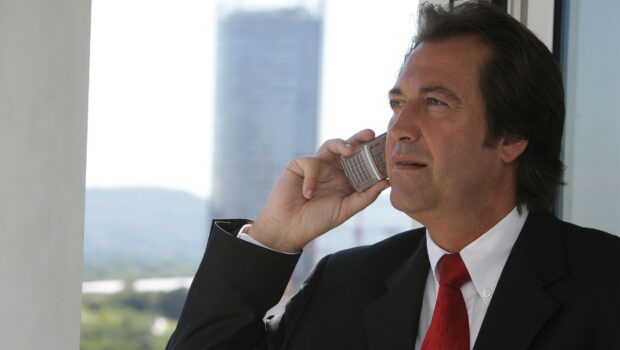Why the Pandemic Has Proved Directors Don’t Need to Dress Up
For many of us, the past year has been spent in our pajamas or loungewear while we worked from home. While we may have had brief stints back in the office as lockdown restrictions eased, for many, they’ve been few and far between.
Work from home attire was a topic that was hotly discussed during the first few months of the pandemic. Some argued that continuing to wear your office clothes improved your productivity because it continued your pre-pandemic work routine. Others took the opportunity to break free from restrictive business dress and instead worked in their joggers, hoodies, and even pajamas.

As we move forward in a world that will likely blend remote and office working, it seems our attitudes towards business dress are changing, and executives should take note.
Your employees are dreading dressing smartly
According to Alison Green, owner of Ask a Manager, one of the biggest anxieties US workers have about returning to the office is dressing smartly. In a piece for Slate, she shares a number of questions she’s received from workers who are worried about being required to wear formal clothing in the office again.
While it may be surprising to see so many people express this as one of their biggest concerns, it makes sense. Sales of pajamas began to rise from early March 2020 onwards, increasing by a huge 290 percent in November 2020.
Are businesses relaxing their dress codes?
Prior to the pandemic, research revealed that 50 percent of workplaces in the US allowed a casual dress code for employees, up from 32 percent in 2014. It also found that 62% of businesses allow a more casual dress code at least once a week.
A business’ dress code affects current and prospective employees’ perception of a business. A Randstad US survey found that 33% of people would turn down a job offer or quit their existing job if they were required to wear formal business attire. What’s more, the same percentage would choose a company with an informal dress code over a $5,000 increase in salary!
Leading by example
It’s clear that US workers overwhelmingly prefer to work at a business without a formal dress code. As we know that happy employees are more productive, your business could benefit from relaxing its dress code. But should you also be leading by example and dressing less formally?
It is an age-old assumption that dressing smartly makes a business leader look competent, but is it really true? A study in the Journal of Business Research argues this isn’t the case. While formal clothing makes a person look like a cookie-cutter leader, it detracts from their personality and charisma. And we know these characteristics are essential for a successful director.
The study found that leaders can actively shape their employees’ perceptions of them based on their workwear, even suggesting that “violating cultural dress codes” appears charismatic and generates approval from employees.
How to get the dress code right in your business
We know now that dress codes aren’t perceived favorably by your people. Some industries and situations, however, still require more formal attire. Employees at law firms, for example, are still required to dress incredibly smartly. Equally, you may have clients visiting you from an industry where smart dress is required and you want to match their attire. That’s why a “dress for your day” policy could suit your business best.
This gives employees flexibility when it comes to their workwear. If they’re meeting with clients or partaking in another activity where smart dress is required, they need to dress formally. However, if they’re simply working in the office, they can dress however they see fit.
If you’re looking to lead from the top and all you’ve ever known is smart suits and ties, try mixing up some of your suit items with more casual clothes. You could pair a crisp white shirt with a pair of jeans or chinos. Equally, mixing up your two-piece with polo shirts is a great way to ease into dressing down and allows you to transition from full three-piece suits to a more casual and relatable wardrobe.
The pandemic has changed the world of work in so many ways. A side-effect of the work-from-home order is that workers are turning against formal business dress more now than ever before, preferring no formal dress code. Not only can changing your business’ dress code keep your employees happy, but adopting it yourself can improve their perceptions of you, making you more relatable and charismatic. Win-win!
Sources:
- https://www.wsj.com/articles/the-science-behind-wfh-dressing-for-zoom-11600626704
- https://www.mckinsey.com/business-functions/organization/our-insights/what-executives-are-saying-about-the-future-of-hybrid-work
- https://slate.com/human-interest/2021/06/office-dress-codes-covid-business-casual-obsolete.html
- https://hbswk.hbs.edu/item/beyond-pajamas-sizing-up-the-pandemic-shopper
- https://rlc.randstadusa.com/press-room/press-releases/randstad-us-survey-finds-casual-dress-is-almost-always-in-fashion-in-todays-workplace?hs_ungate__cos_renderer_combine_all_css_disable=true&hs_ungate__cos_renderer_coverage_css_enable=false&hsVerifyCssCombining=false
- https://www.indeed.com/lead/casual-dress-in-workplace
- https://www.sciencedirect.com/science/article/pii/S0148296320307797
- https://www.forbes.com/sites/deborahlovich/2021/01/13/2021s-dress-for-your-day-work-for-your-work/
















